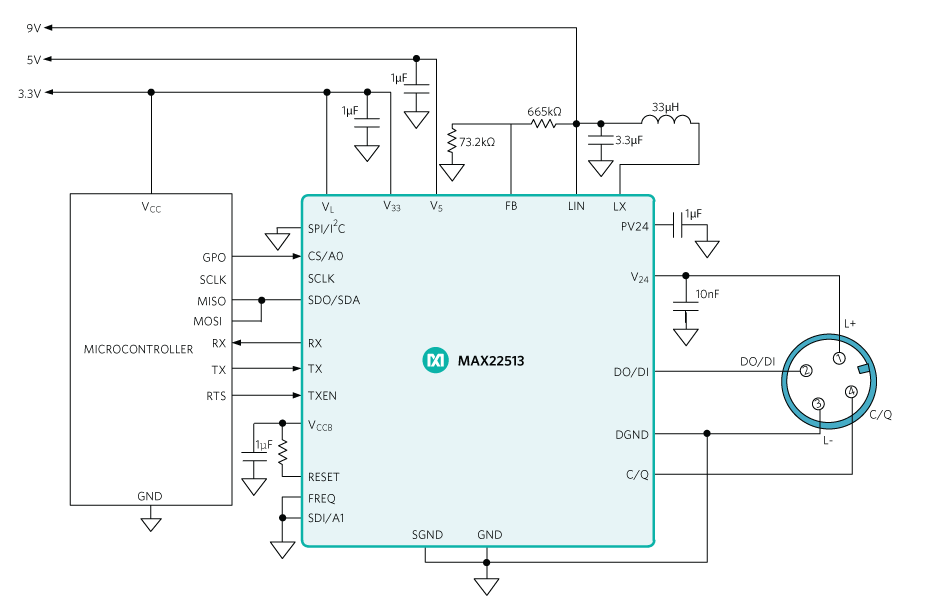Maxim’s MAX22513EVKIT – ioLink Made Easy
Field busses come dime a dozen – sadly, their relatively complex protocols hamper their deployment in small sensors and actors. The ProfiBus user consortium’s ioLink system is a simpler interface which recently made waves.
As with most other serial buses, creating a transciever by bit banging is a tedious and dissatisfactory job. Maxim’s MAX22513 provides a convenient alternative if an ioLink slave is to be developed with minimal effort. An example implementation presents itself like figure one. Actual communication between the microcontroller and the transciever can then take place via I2C or SPI.
Creating an ioLink slave is not particularily difficult

Sadly, bringing up this ioLink IC does cause a bit of work – first of all, keep in mind the extremely small case sizes which are impossible to solder by hand. Dallas Maxim addresses this problem via a PCB called MAX22513EVKIT – it comes with an USB port and can be connected to a workstation with minimal effort.
The part does, however, come with footprints for an Arduino-compatible connector. This lets you connect the transciever IC to a microcontroller easily, opening the world of ioLink to whatever sensors or other peripherals you may want to bring along. The part, itself, of course is flexible – thanks to the DC DC converter, the various issues related to voltage provision are solved.
Sadly, Dallas Maxim does not intend this evaluation kit to be used in any kind of series production. As of this writing, the best price for the MAX22513EVKIT is in the range of 146 - 163 USD – designing a PCB based on the design should be cheaper the moment more than one or two are needed.
Finally, allow us a legal warning: ioLink is heavily trademarked and patented in Western Germany. Exercise extreme caution when selling a product based on the MAX22513 – in many cases, a license from the standardization gremium is needed even when using an ioLink transciever IC and/or evaluation kit.